
Wacky climate impacts
Chocolate rations, “crazy” fish and the spread of ancient diseases probably don’t spring to mind when you think of climate change. We scanned the news for reports of the more unusual impacts of rising temperatures.



Chocolate rations, “crazy” fish and the spread of ancient diseases probably don’t spring to mind when you think of climate change. We scanned the news for reports of the more unusual impacts of rising temperatures.
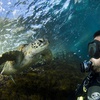
About 75 per cent of Redmap photos are uploaded by scuba divers! Read these amusing dive stories from citizen scientists around the country.
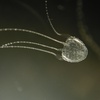
As the world's climate and oceans become warmer jellyfish species from across the globe are spreading quickly and vastly, writes ABC's Bush Telegraph. Read the full article here.

Inspiring Australia writes: A marine species mapping project using photographs taken by citizen scientists is generating its own headlines, with each sighting telling a new, rich and interesting story. Read the article about Redmap here.
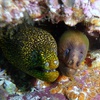
Rising acid levels in the world's oceans have a two-fold impact: it affects sea creatures directly and may increase global warming by 0.5 degrees Celcius by the end of the century. Read the ABC article here.

"Representing climate change and ocean warming as Hiroshima bombs attracted the attention of news media around the world. So, when it comes to sharpening people’s focus, which images have the most impact?" Read the full article here at Science Alert.
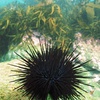
Explore the Seafloor is asking for help to identify images of sea urchins and kelp during August. The project takes a 'crowd-sourcing' approach to a job normally done by research assistants! Read more at www.exploretheseafloor.net.au.

For an online "webinar" that is! Redmap founder Dr Gretta Pecl co-hosted a citizen science seminar which was viewed live across the globe. Watch the video presentation here. (note: Dr Gretta starts talking about Redmap at ~2min40).
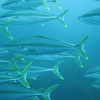
Warming seas are impacting the breeding cycles and habitat of marine life, according to a recently published three-year international study (including Australia's CSIRO). Read the full article in The Conversation here.
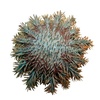
AFP: "A major research aquarium able to simulate ocean warming and carry out key studies on the deadly crown-of-thorns starfish devastating the Great Barrier Reef opened in Australia...." Read the article here.